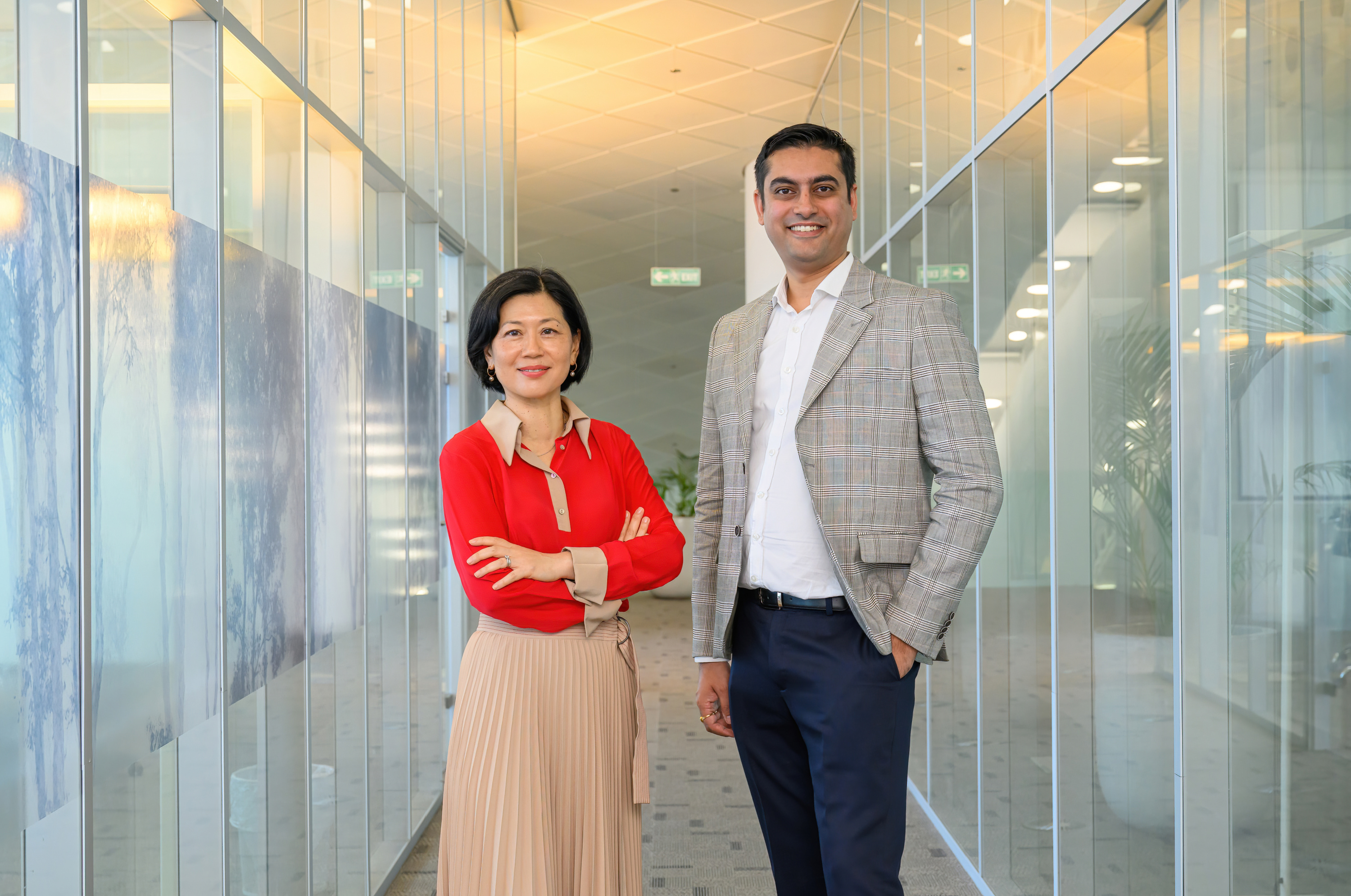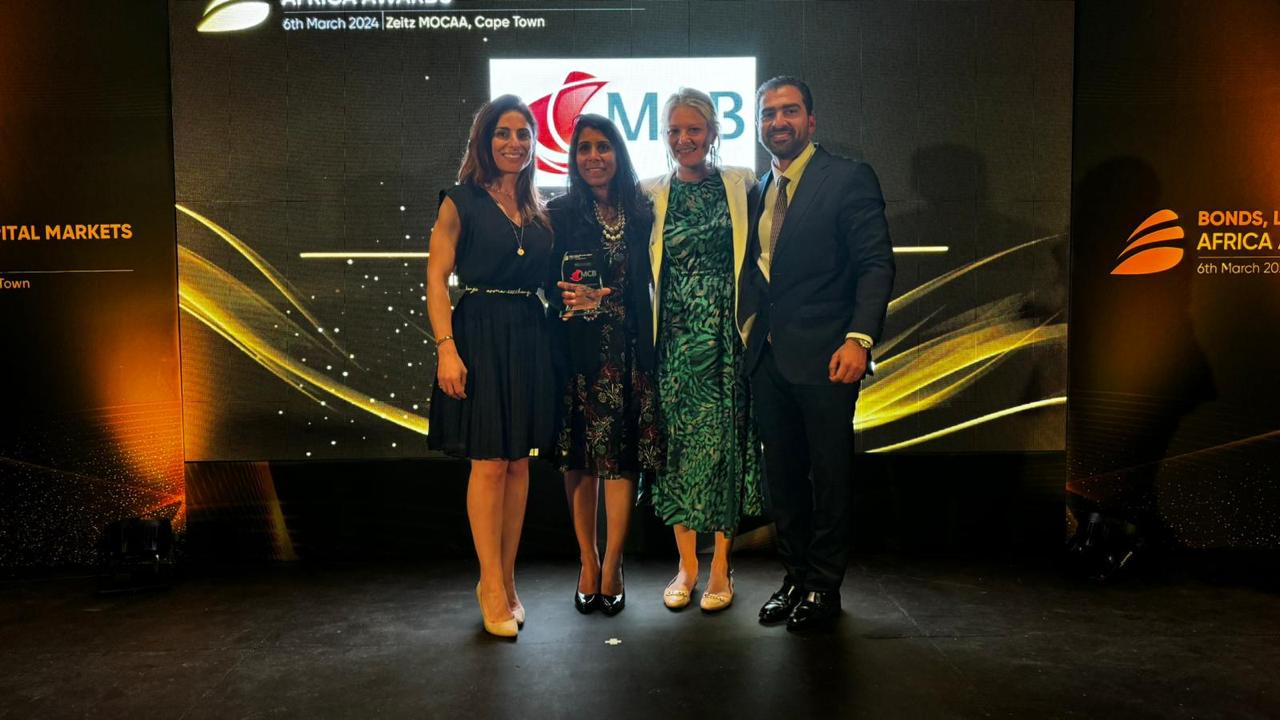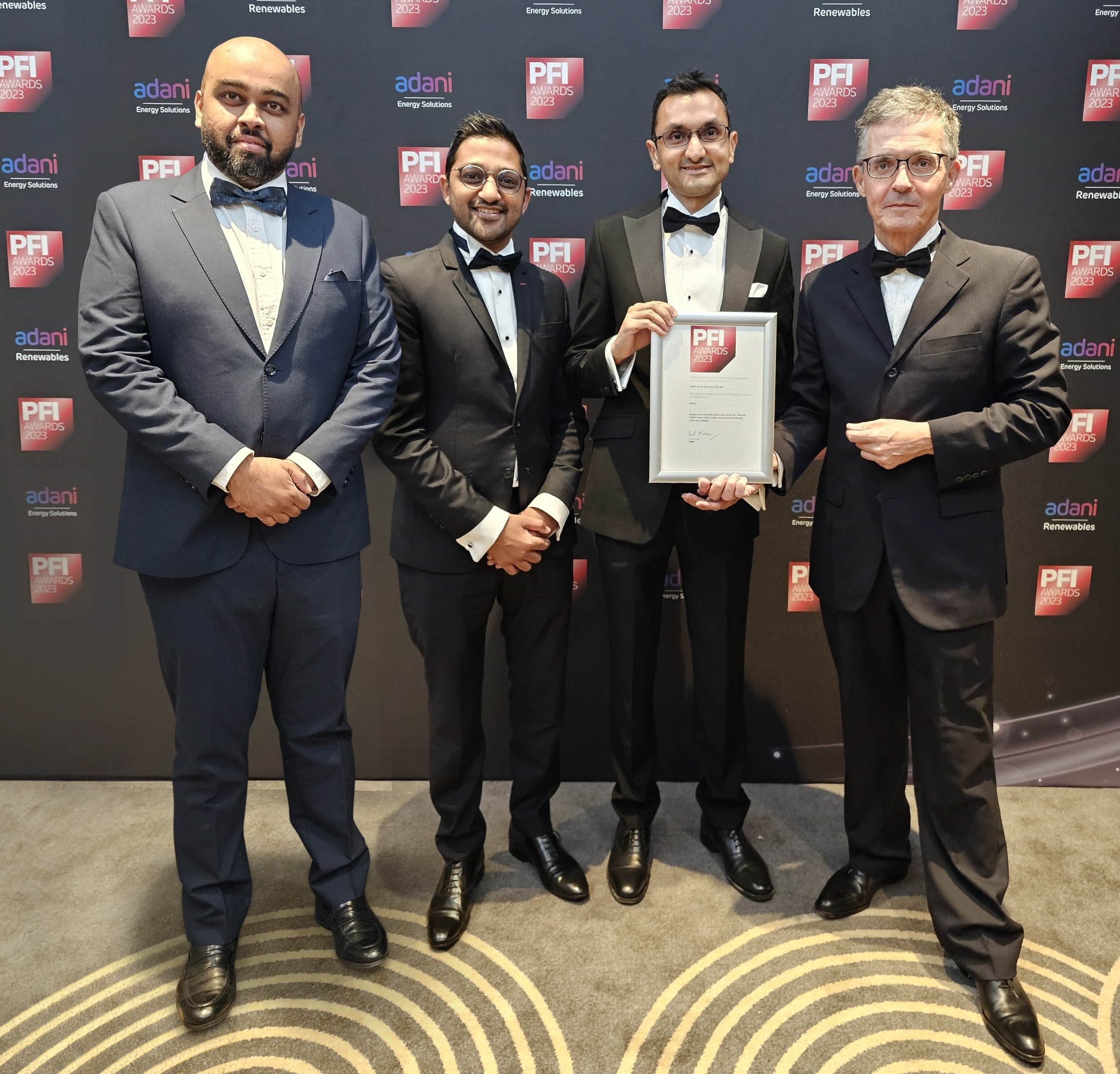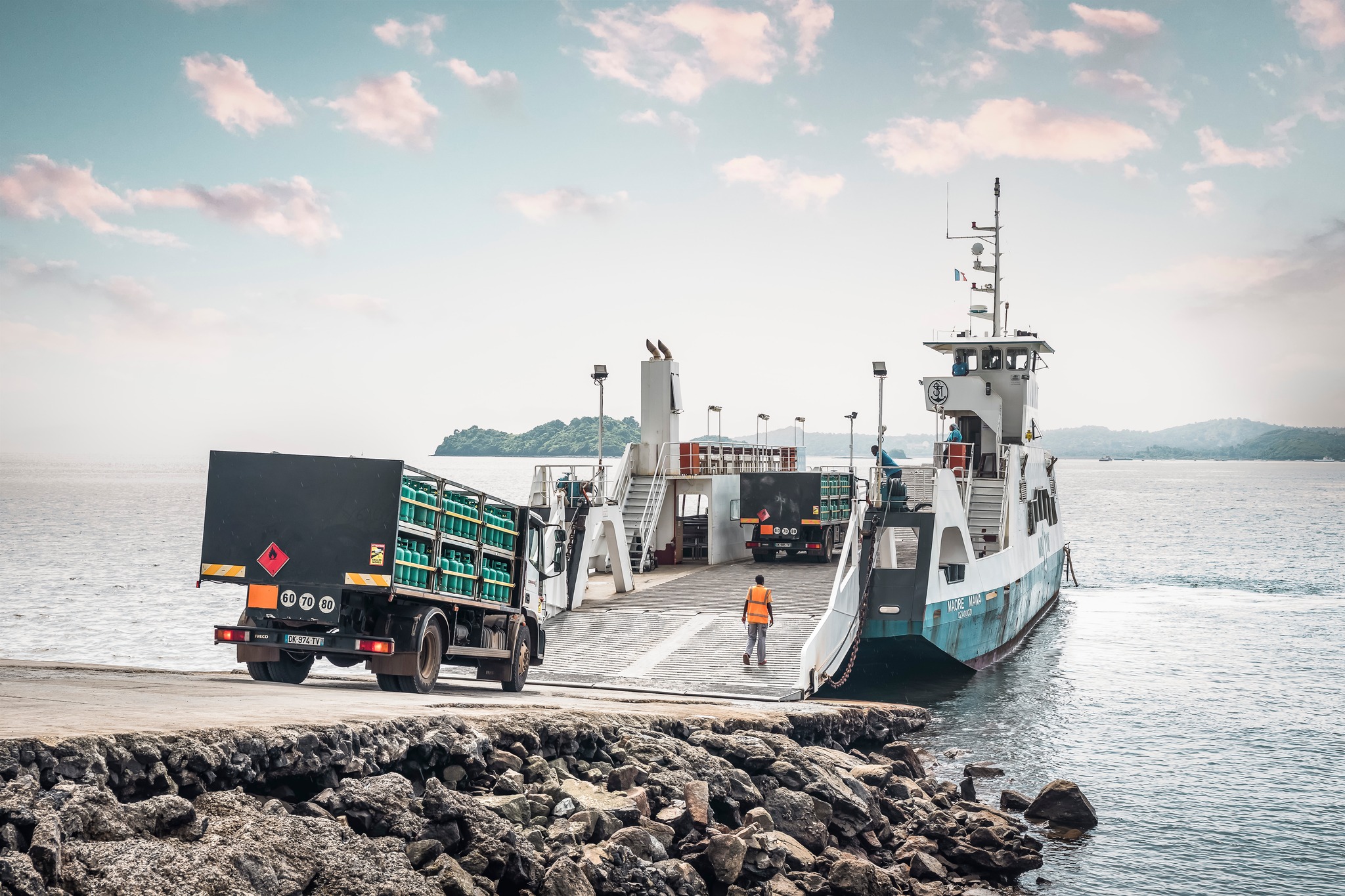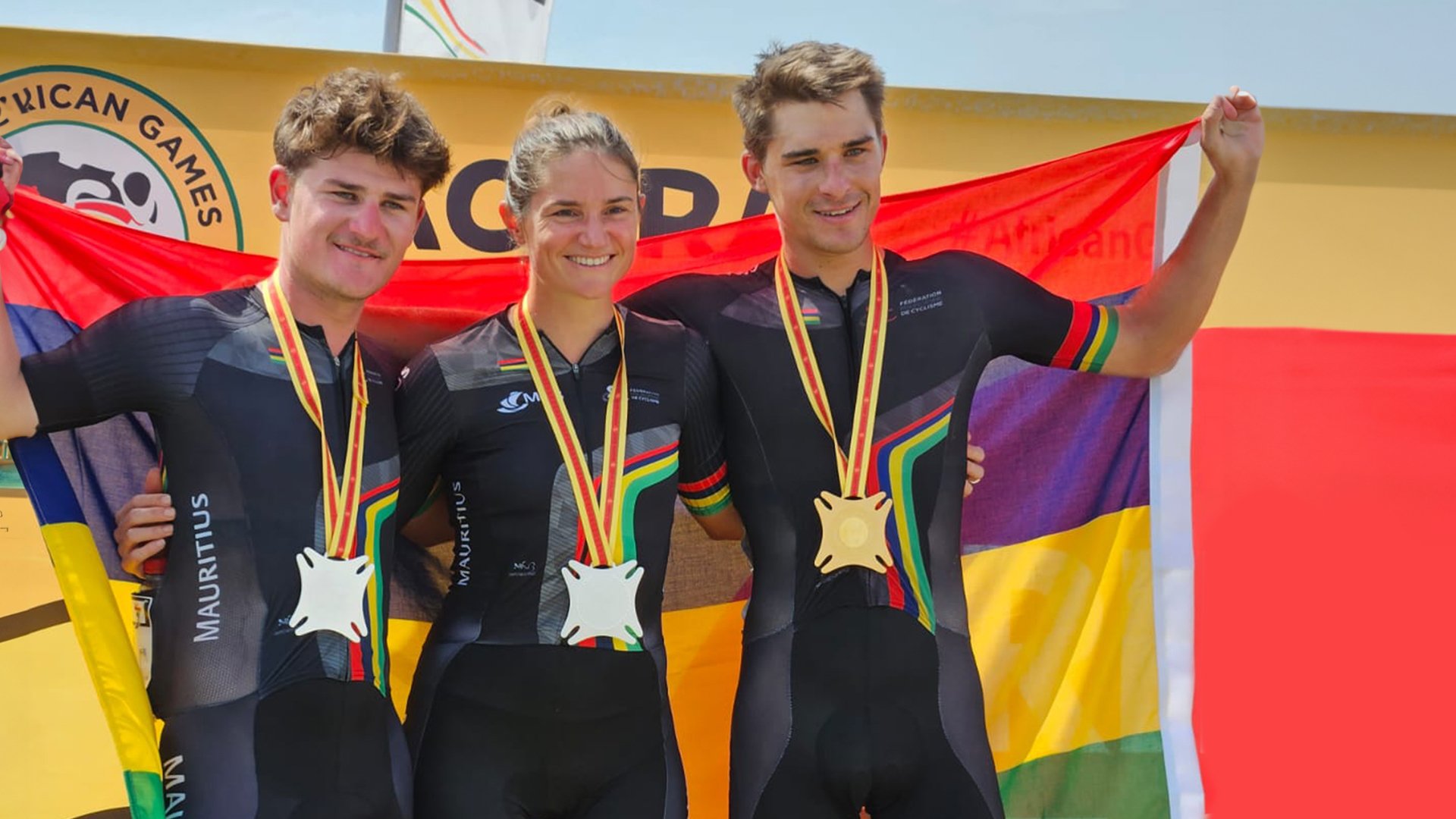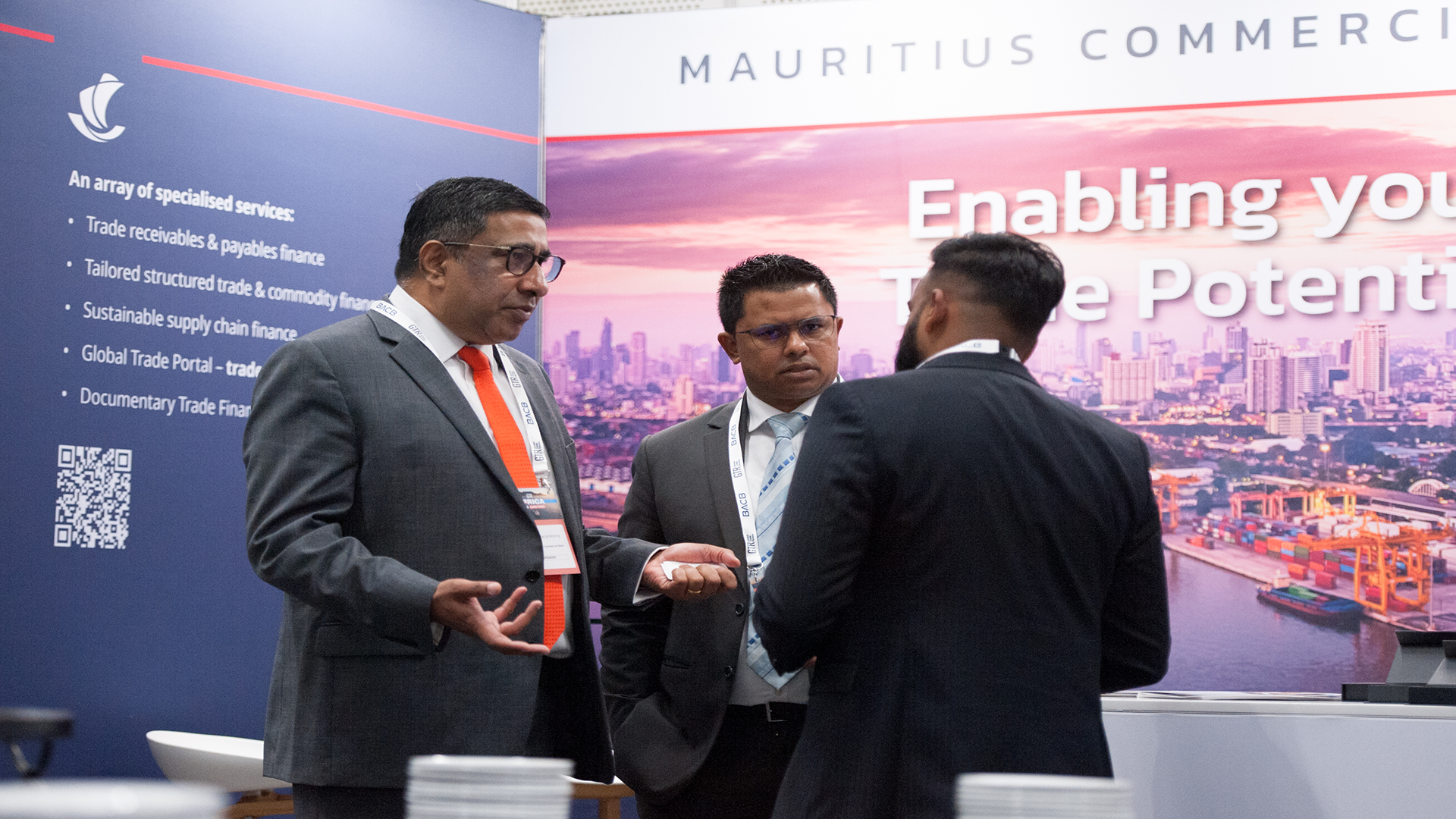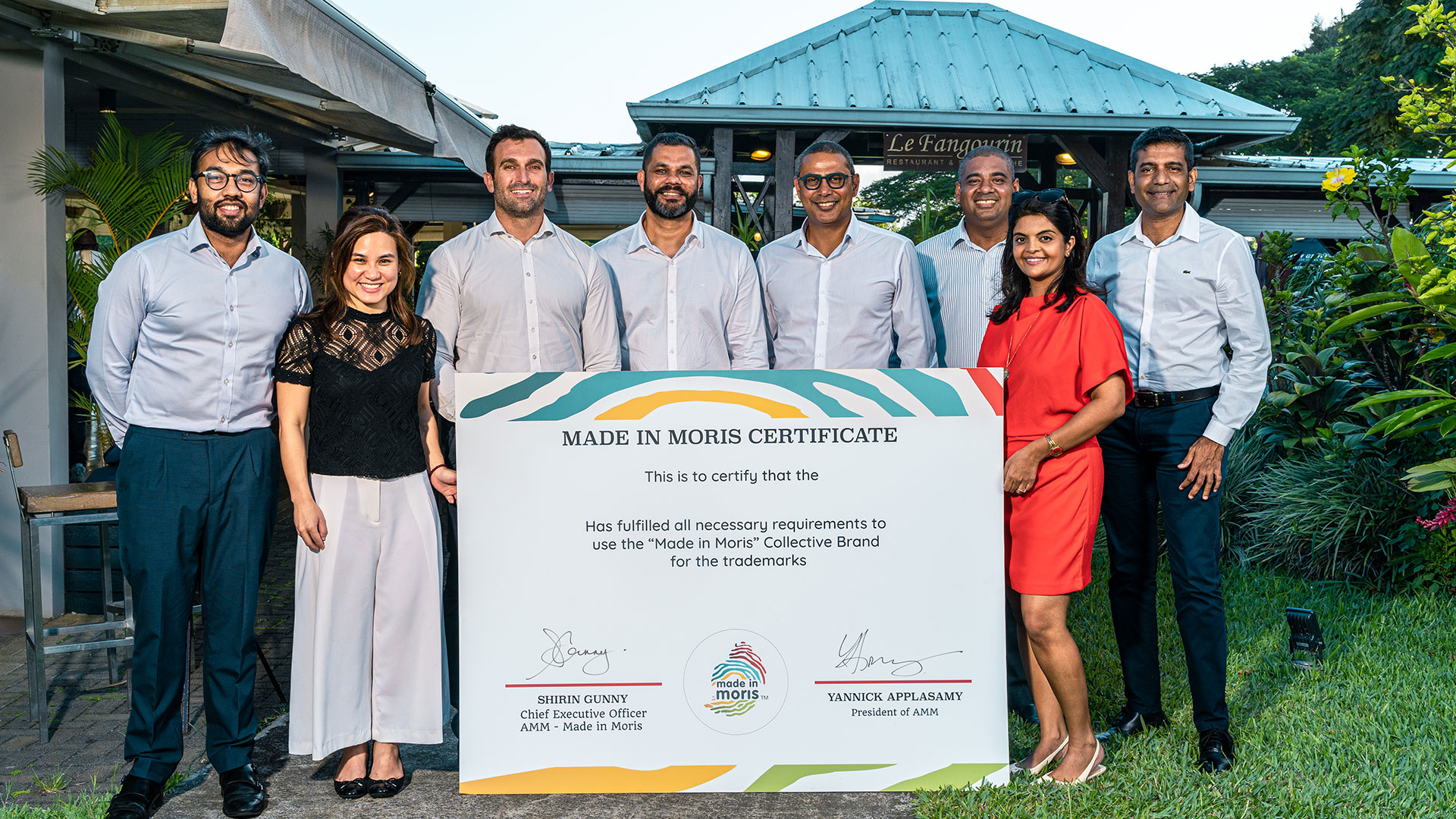- Home
- Investor Centre
- Sustainability
- Talent
- News
- TH!NK
- Corporate Governance
- Company Profile
- Board of Directors
- Community
Contact Info
Diane Tompson: “Often our male champions never see the prejudice that women experience”
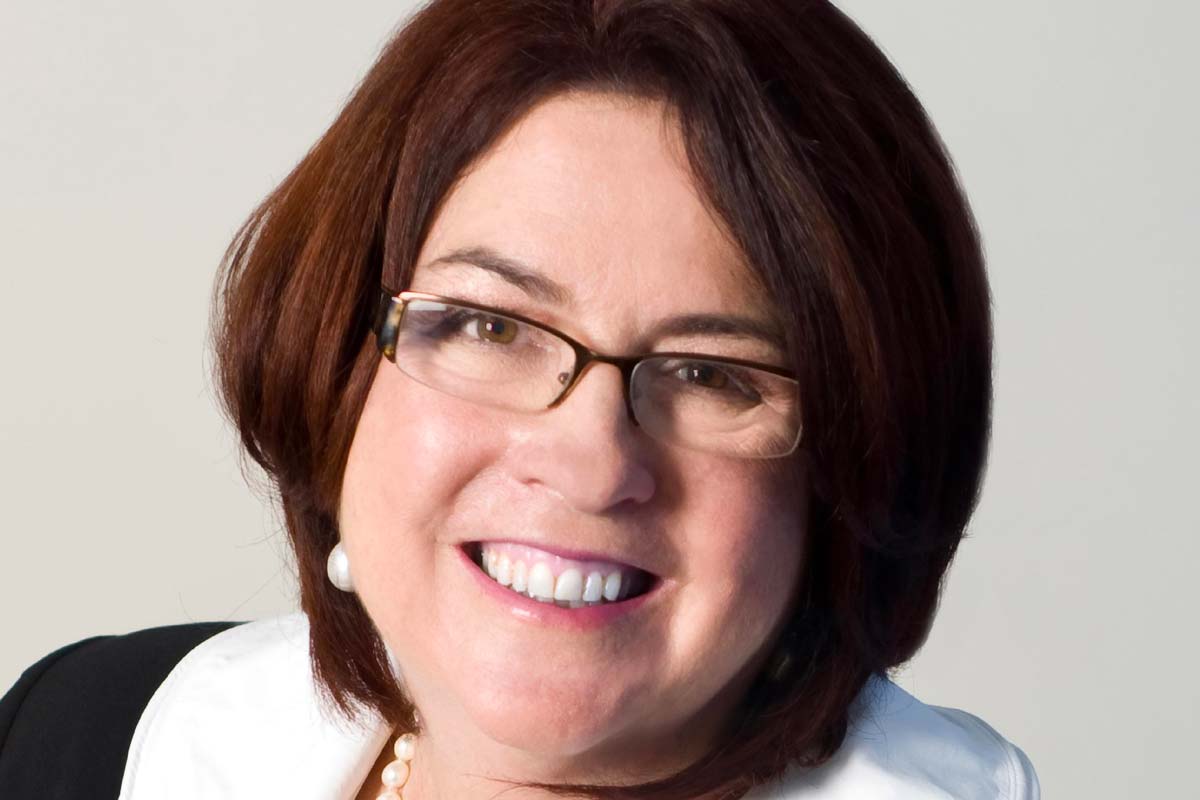
From Tasmania, Diane Tompson, MD of The Powercom Group, shares a few words of wisdom on gender equity, on what it takes to be an entrepreneur, and on the need to always keep a sense of humour. Diane will be mentoring women entrepreneurs in Mauritius through the Business Without Borders programme. Led by the AMFCE (Association Mauricienne des Femmes Chefs d’Entreprises), this programme is proudly supported by MCB.
2020 has been a challenging year and entrepreneurs worldwide have been hit hard. How can entrepreneurship survive this year?
Hold your nerve is the message I would give. The world will recover and if you manage your business well and survive the crisis, you will hit the ground running when the economic environment changes.
Those of us that have had to reinvent ourselves (and even in our businesses we had to do that) are going to end up being far stronger than before the isolation of COVID. We have had to find reserves of everything from cash flow, skills capabilities of our staff, time, people management and most of all confidence.
Everyone I know has struggled with some sort of problem from outright depression, to an inability to think clearly and having no energy to do anything, let alone run a business.
For those of us in the southern hemisphere, we have left winter behind, and I believe this will help us lift our spirits and look more brightly on our future.
You are one of the Mentors for AMFCE’s Mentoring and Training Programme for Female Entrepreneurs. Do you believe that women (female) entrepreneurs face the same challenges as men (male) entrepreneurs?
Often our male champions never see the prejudice that women experience, nor the way that we have to work twice as hard to be recognised.
This is a worldwide phenomenon and men clearly don’t see gender inequity as a problem or indeed give it any thought at all. Because they don’t have to fight the inequality that we do, it’s not real to them. They take everything at face value and don’t even realise when other men are trying to impress them. Women have far more empathy and feel keenly their inability to progress. The reason that many women go into business is that they become disenchanted with corporate life and being overlooked by less experienced young men.
I think that unless you are already competing in the marketplace with our male colleagues, you may have a far better future as a businesswoman and in being your own boss, rather than being in a corporation where you are competing directly with men.
What will be your focus as mentor during Business Without Borders?
With my vast networks I am able to source mentors, however I have also been trained as a mentor by the Cherie Blair Foundation. I have been a mentor many times over.
I will also bring delegations of Australian women to the Indian Ocean islands. I absolutely adore working with Aline Wong and the committed AMFCE team. I am welcomed with open arms when I go there, and I feel a close relationship with women on islands. I come from the island of Tasmania after all. I know what it’s like to be isolated from the “Big Smoke”. Islanders are more resilient, more creative, innovative and more open to suggestions of ways to improve their businesses. Apparently we also excel at exporting, far better than mainland Australia.
My passion is education and I believe that we must work out the best way of teaching and inspiring others to be the best that they can be.
How can such programmes help Mauritian women in the entrepreneurial journey?
When I started in business, I knew absolutely nothing about how to run a business. I had to create my own mentor network and then I had to listen and learn absolutely everything I could about how to be a successful business owner.
I would have loved the opportunity to be involved in a programme like Business Without Borders. It’s world class in its teachings and guides the mentees through all aspects of running a business, including how to present yourself to customers. We even talk about business and personal branding.
A lot of people have a stereotypical view of entrepreneurs and the “get rich quick syndrome” is a view shared by many regarding entrepreneurs. The reality is that having a business is hard work and requires lots of enterprising behaviour. Entrepreneurs are risk takers and ideas people, but it doesn’t have to result in disaster or in short term vision. There is nothing more satisfying than to create a living thing like a business and see it evolve over many years to become a successful entity. Perhaps, like us it may be taken over by the next generation, where our daughter is now running our business operations.
You are also involved in a number of industry and institutional networks. What motivates this type of involvement?
The appointments on councils and boards only happened after I won the Telstra Business Woman of the Year for my state of Tasmania. It was like I was suddenly given credibility. I believed that I was the same person with the same set of skills before and then after the award ceremony, but it became very clear at that time that you had to prove your worth and the award did that for me.
I currently still sit on the Tasmanian Minerals and Advanced Manufacturing council and I do this, not because I like meetings, but because if industry people do not have representation on boards like this, decisions may be made that are detrimental to our livelihoods.
I think there were several reasons for being a part of all the councils and boards, mainly in manufacturing and education. One was that it strategically put our company forward particularly in government circles and the other was that I learned a lot in the running of my own board.
I believe one of the most important reasons that I consented to be a part of these boards is because my industry is full of men and therefore if we are given the opportunity as women to voice our opinion and be respected by our peers, we must participate and should. How else will the next generation of women be listened to or be given credence for their views? Women must have a seat at the right tables to make a difference.
Let’s go slightly back in time. In 1991 you founded, with your husband Phillip, Powercom Consultants in Tasmania and attended night school to learn accountancy. What was your vision back then?
Phillip and I decided that there was no point in going into business with short term goals. It was clear that you needed time to build reputation and brand. We actually didn’t start manufacturing until the second year of operations and then it was only a very small part of our business. We went into business with a company from Melbourne and we manufactured large filters. That only lasted 18 months before we continued on alone. The company which was in business with us was unable to pay its bills, so we came to an arrangement where we bought them out. We learned first-hand through that experience how important it was to diversify your customer base, otherwise you get caught with no cash flow if they can’t pay you.
Thank goodness I did learn accountancy because otherwise I would have been financially illiterate in our business operations. I remember a close friend who became a doctor and a specialist, and who was shocked when she discovered that she couldn’t read a Profit & Loss sheet. The realisation suddenly became evident to her that she wouldn’t have been able to tell if all her money was being embezzled by her accountant and it was a shock! You can be dux of the school (as she was) and not have a clue about how to run a business successfully! You need skills.
You originally started your career as specialist high school music teacher. Did you always intend to become an entrepreneur?
I have always been an entrepreneur. When I was in kindergarten, a friend and I put on puppet shows for the neighbourhood children. We charged three pence! Whilst a student at the conservatorium I started the music student’s council. I persuaded the other students to put on concerts, and this helped fund even more concerts and to buy sheet music which was very expensive in the 70s. When I taught high school music, I arranged for our newly formed concert band to tour all the feeder schools. And, after I had my children and because my husband and I had decided that one parent would remain at home, I started a small business where we sold applique kits to sewers along with two friends who remain close today.
Later, I was teaching at the local university and enrolled in a Master of Music programme in Victoria. Business was the last thing on my agenda back then, however in taking on the responsibility of the administrative side of the business, I found that I had an aptitude for it and really loved the challenge.
As a woman, wife and mother of three, how have you juggled between your personal and professional obligations? Any tips?
I used to joke that sleeping was such a waste of time. I still haven’t learnt to let go and I’m lucky that I haven’t ended up with a major illness. I think I probably had a bit of burn out when we first started the business and I was responsible for everything to do with the children. I have always put the children first because someone in the family has had to do that.
I am not sure that I would want to undertake such a huge challenge if I had very small children. I’m glad that I waited until we were a bit older and more mature. We had a lot to learn and the capacity to do so, but I think maturity counts for a great deal in the survival of your business.
BIG TIP: If you fail, don’t panic. That’s how you learn, so just pick yourself up and go again.
SECOND BIG TIP: ALWAYS trust your instincts. If it doesn’t seem right, it probably isn’t, so say something or do something about it.
THIRD BIG TIP: Don’t forget to look at how far you and your business have come and examine what success really means for you and your business. In this world no one tells you that you are doing a good job so maybe you have to. We are so busy working in the business, we often forget to work ON it.
Last but not least, what, is according to you the required trait or competence to be a successful entrepreneur?
I may have already mentioned some.
Bravery and courage - believing in yourself.
Optimism - become the eternal optimist and give it a go.
Innovation - be prepared to try something new if something isn’t working
Manoeuvrability and adaptability - be prepared to roll with the punches and to change direction if something affects the business.
Preparedness - make sure your product works well before unleashing on the public. This is especially true for exporting.
Discipline and consistency - work out what they are and stick to them. In that mix should be customers because without them you won’t have a business and, importantly, work consistently.
Finding what you aren’t good at and finding other people to do what you can’t.
And above all, have a good sense of humour, you’ll need it.
About Diane
Dip Mus, B Ed, TTC, FAICD, FRSA Managing Director The Powercom Group
Diane Tompson is co-owner of three companies based in Tasmania. Powercom Consultants Pty Ltd, Novaris Pty Ltd and Powercom Systems Pty Ltd and is a founding director and co-owner of Novaris Technologies Malaysia.
She is a past National President of Women Chiefs of Enterprises (International) Pty Ltd {WCEI} and a current member of its board. In 2005, she received the honour of being acknowledged as Tasmania’s, Telstra Business Woman of the Year and in 2009, Diane became the first woman to receive the Gold Medal Award from the Australian Institute of Company Directors.
Diane’s passion is in the development and empowerment of businesswomen. She is also a fellow of the Australian Institute of Company Directors and the Royal Society for the Arts.
Subscribe to our Email Alerts
Stay up-to-date with our latest releases delivered straight to your inbox.
Contact
Don't hesitate to contact us for additional info
Email alerts
Keep abreast of our financial updates.





